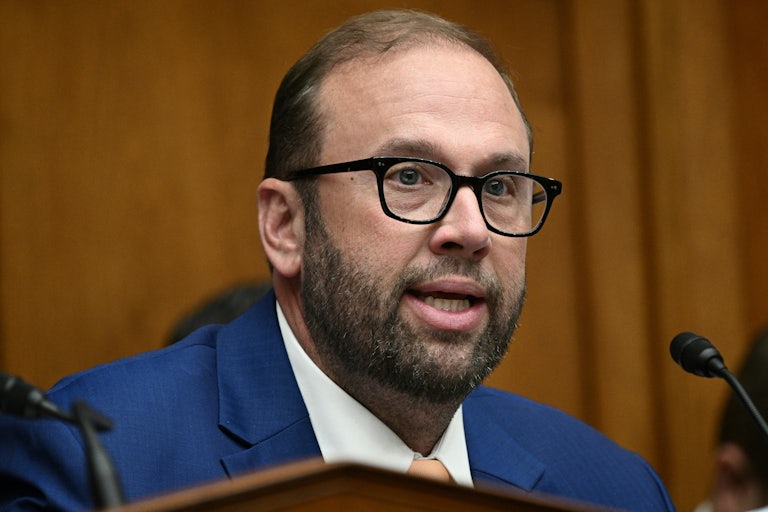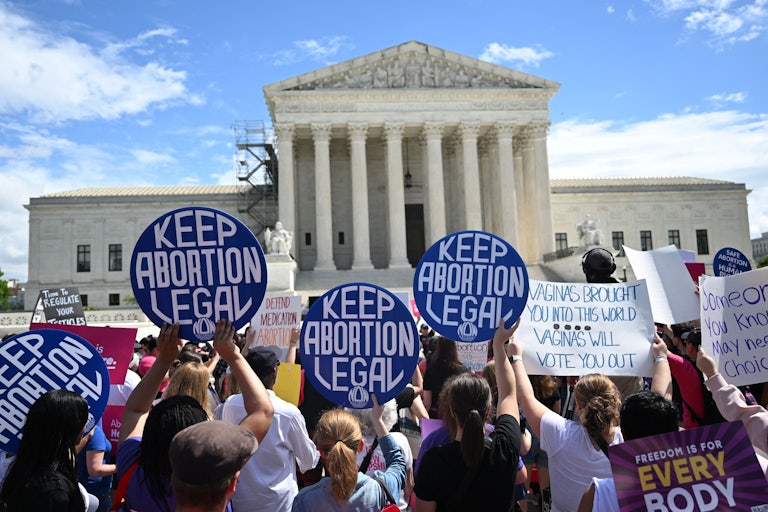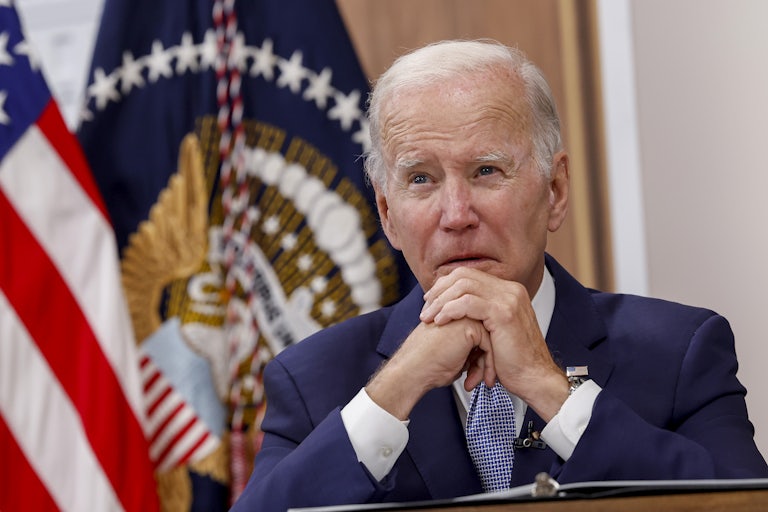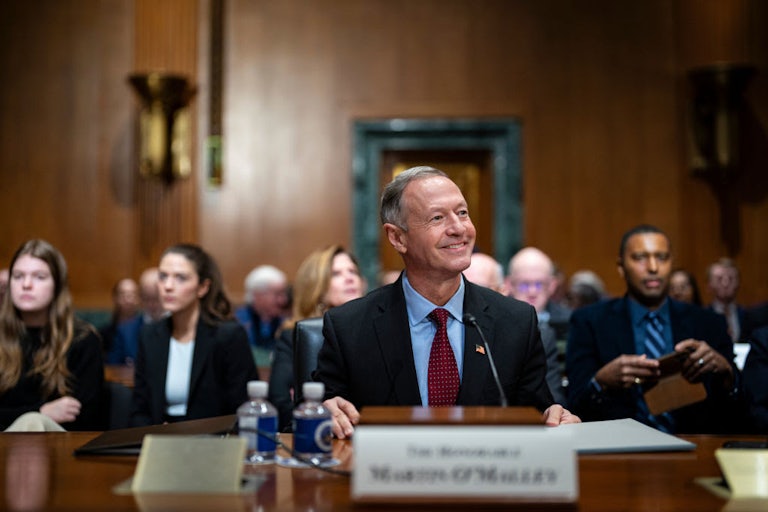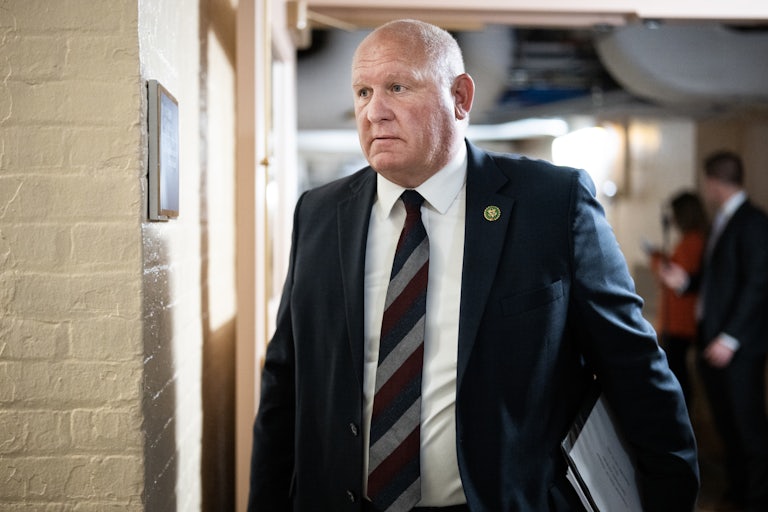Millions of Americans Could Soon Be Very Offline
A staggering number of households across the country may lose broadband access if Congress doesn’t act.
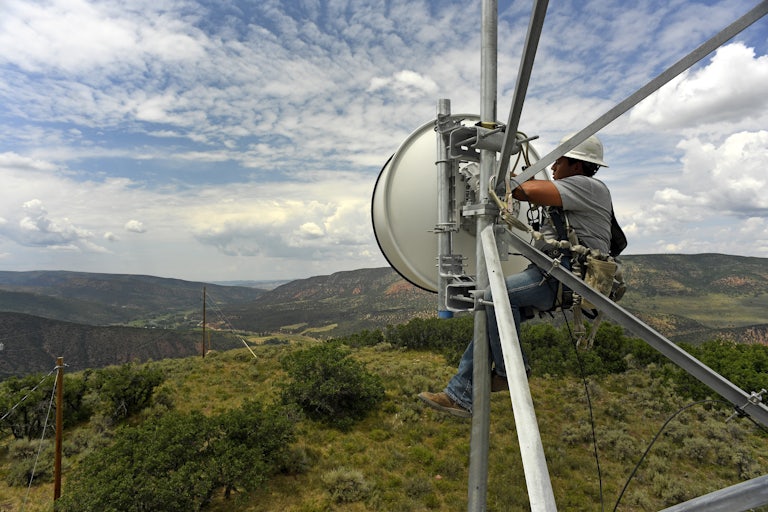
Without additional funding, a program providing affordable internet access for low-income Americans could end this spring. Last week, the Federal Communications Commission warned that the Affordable Connectivity Program, or ACP, was due to run out of funding in May and would no longer accept new enrollments beginning in early February. In October, the White House requested that Congress authorize an additional $6 billion for the program, which helps provide discounted internet access for around 23 million households.
In order to address that impending shortfall, a bipartisan crew of senators have introduced legislation to extend the program, which provides up to $30 monthly discounts on internet bills for low-income families and up to $75 monthly discounts for eligible households on tribal lands. The bill, which also has bipartisan support in the House, would grant the program an additional $7 billion to keep it running.
The ACP replaced the pandemic-era Emergency Broadband Benefit Program, which provided $50 monthly broadband subsidies for low-income households. “When the pandemic happened, it became crystal clear that a robust affordable broadband program is not a luxury, it’s a necessity,” said Gigi Sohn, the executive director of the American Association for Public Broadband, which supports the Affordable Connectivity Program Extension Act.
Senator Peter Welch, who introduced the legislation in the Senate, said that he was heartened by the bipartisan support; as the lack of broadband access particularly affects people living in rural areas, it’s an issue that crosses party lines. However, it’s unclear whether the legislation will be a part of the ongoing appropriations process to keep the government funded. “We have to contend with all the complications of a complicated budget,” said Welch.
Despite its bipartisan support, the program is not universally popular. Some Republicans have challenged the FCC’s claims that ending the program would lead to 23 million households getting disconnected. In a letter to FCC Chairwoman Jessica Rosenworcel last month, several Republican lawmakers argued that “it appears the vast majority of tax dollars have gone to households that already had broadband prior to the subsidy.”
“The program’s record of targeting taxpayer subsidies to consumers who already had broadband is further apparent in the FCC’s enrollment numbers: The number of households in the ACP—approximately 22 million—far exceeds the 16 million unconnected households according to 2021 Census data,” the letter said. However, many of the current beneficiaries of the ACP had previously obtained access through the Emergency Broadband Benefit Program.
Sohn said that the ACP helped both people who previously did not have access to the internet and those with “internet insecurity.” “There are families who may purchase internet for a couple months so the kids can do homework and then they disconnect over the summer,” Sohn said. “It’s not a constant connection, which is what you want.”
Welch argued that even if a household technically has access to broadband, it doesn’t mean that they can afford it. “This is a $30 rebate for folks, many of whom are making $15,000 a year with two kids. So we’ve got to help those folks so that they can get ahead, their kids can get ahead,” said Welch. “So I think it’s a totally worthwhile use of money.”
Representative Brian Fitzpatrick, the bill’s Republican co–lead sponsor in the House, also argued that keeping low-income Americans connected to the internet should outweigh concerns about cost.
“It’s more expensive for people not to have access. The downstream costs, economically and socially and psychologically, are much more expensive than not doing it,” Fitzpatrick said. “It’s an investment, not an expense. Not everything that you spend money on is an expense.”
Vibe check: Trump wins over GOP senators
Each week, I provide an update on the vibes surrounding a particular policy or political development. This week: growing support for Trump among Republican senators.
With Senator Ted Cruz’s endorsement of former President Donald Trump on Tuesday, more than half of the 49 Republicans in the Senate now formally support Trump’s presidential bid. Despite the outright antagonistic relationship between the former president and Senate Minority Leader Mitch McConnell, Republican senators have increasingly fallen in line behind Trump’s campaign.
On Wednesday, Cruz told reporters that Trump’s blowout win in the Iowa caucuses this week left him with the belief that the race is “effectively over.” Senator Cynthia Lummis concurred, saying that “the window closed” on Trump’s would-be competition—the fact that Nikki Haley and Ron DeSantis are sallying on to compete in the New Hampshire and South Carolina primaries notwithstanding. “I think in 2023 the window was open to more candidates but when finally 2024 rolled around ... it just became apparent the window had closed and Trump was going to be the nominee,” Lummis told HuffPost reporter Igor Bobic.
Florida Senator Marco Rubio, who endorsed Trump on Sunday, explained to reporters why he had chosen Trump over his home state governor, Ron DeSantis. “I endorsed the candidate in the race who asked for my endorsement,” Rubio said.
Still, support for Trump among Republican senators isn’t universal. Senator John Thune, the GOP whip, told CNN that he has “always been worried” about Trump’s general election prospects. Senator John Cornyn said that “it’s not over yet.”
Senator Mike Rounds, who endorsed fellow Republican Senator Tim Scott for president before Scott dropped out of the race, told me that he was waiting to endorse another candidate. “I have a huge amount of respect for Tim, and … with him stepping into it, I think it probably would have been inappropriate—based on our relationship—not to have offered him my full endorsement,” Rounds said. “Now I can relax a bit.”
Perhaps unsurprisingly, Senator Mitt Romney—one of Trump’s harshest critics—expressed frustration with not only Trump but his supporters.
“I think a lot of people in this country are out of touch with reality and will accept anything Donald Trump tells them. You had a jury that said that Donald Trump had raped a woman, and yet I don’t think that seems to be moving the needle,” said Romney, referring to a ruling by a New York jury last year that Trump sexually abused writer E. Jean Carroll. “There are a lot of things about today’s electorate I don’t understand.”
What I’m reading
How Octavia Butler told the future, by Tiya Miles in The Atlantic
$6 trillion in taxes are at stake in this year’s elections, by Richard Rubin in The Wall Street Journal
‘This to him is the grand finale’: Donald Trump’s 50-year mission to discredit the justice system, by Michael Kruse in Politico
A death at Walmart, by Jasper Craven in The New Republic
The stunt awards are back, by Brandon Streussnig and Bilge Ebiri in Vulture
Hakim, meet Hakeem: How a young city farmer got to know a congressman, by Mihir Zaveri in The New York Times
Pet of the week


